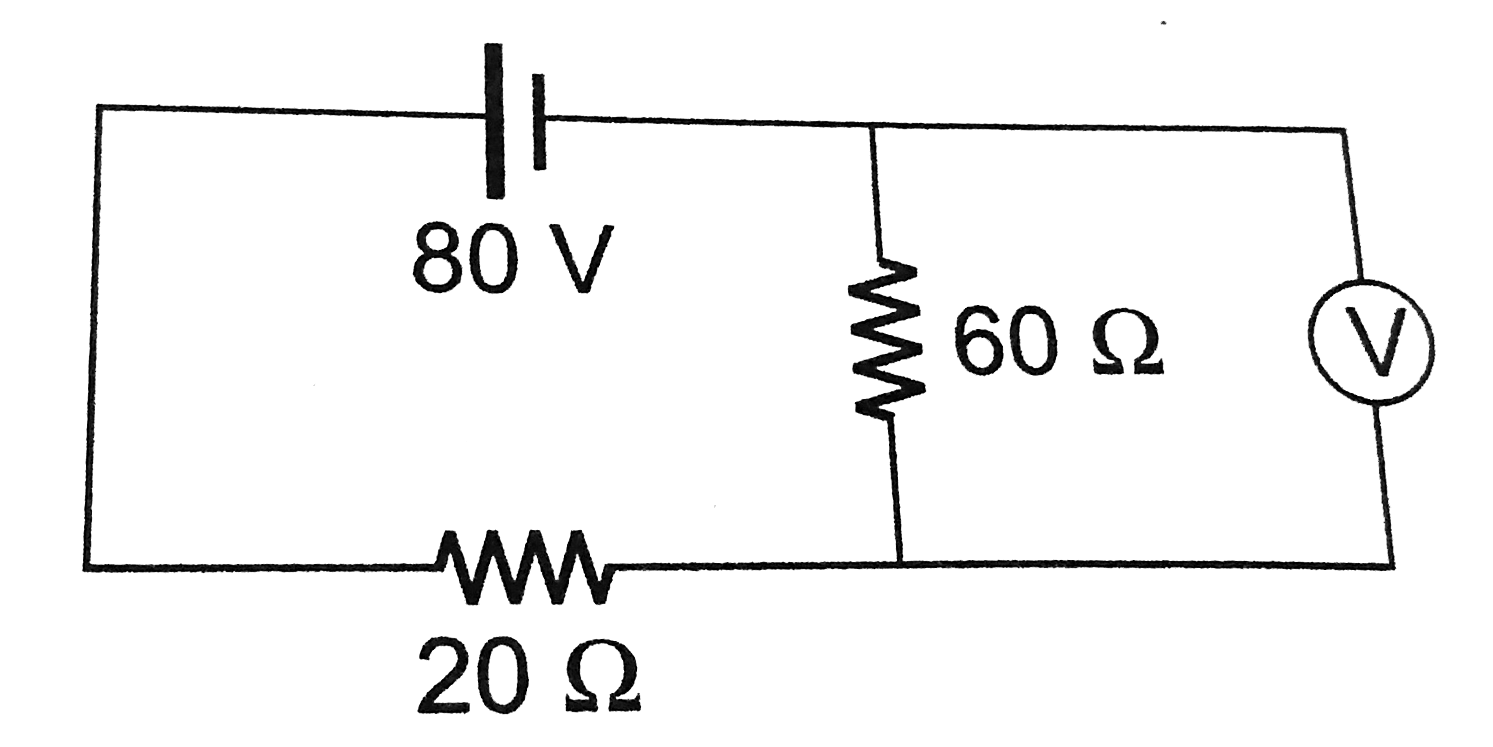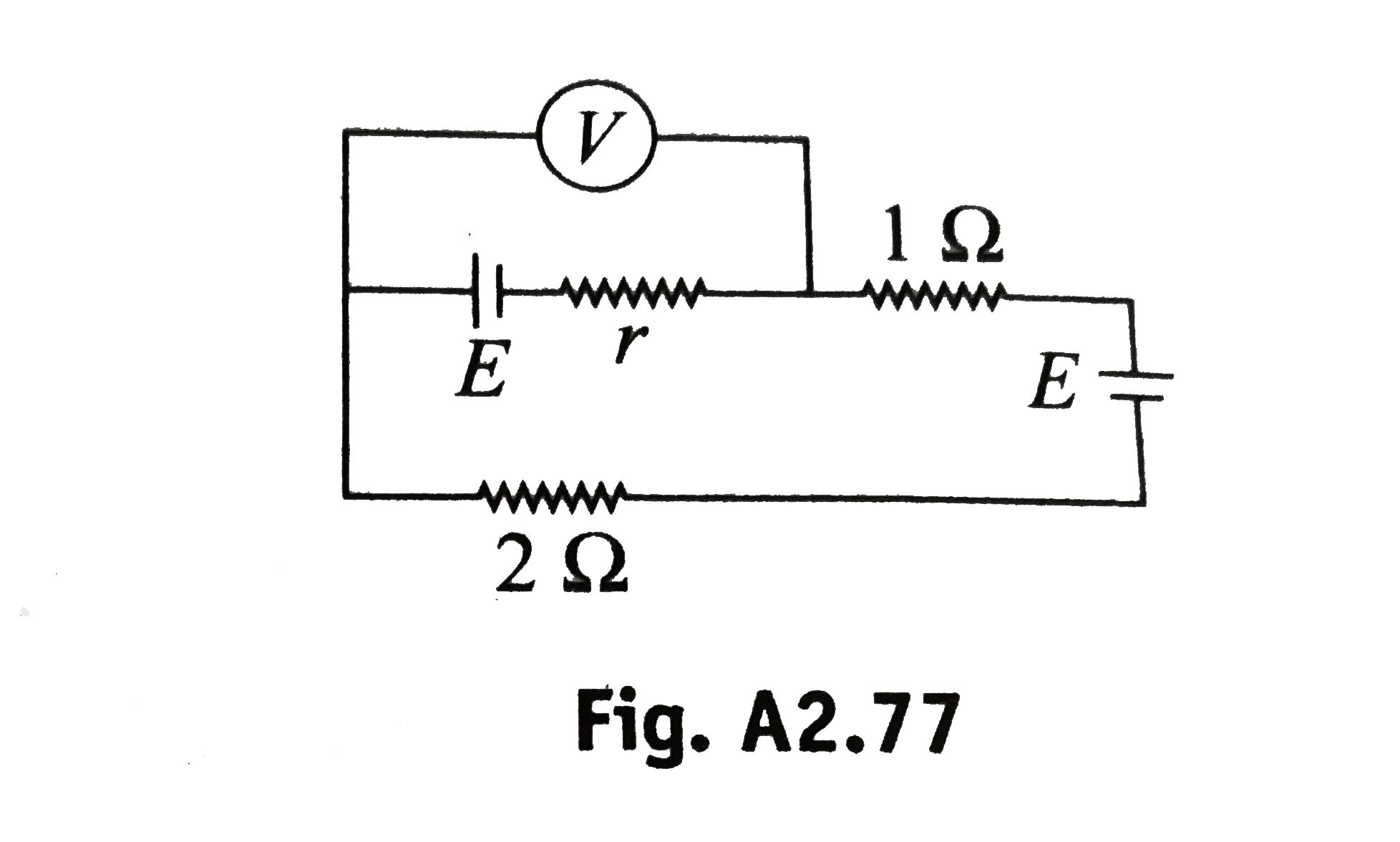Statement I: The resistance of an ideal voltmeter should be infinite.
Statement II: Lower resistance of voltmeters gives a reading lower than the actual potential difference across the terminals.
If both assertion and Reason are true and the Reason is the correct explanation of the assertion.
If both assertion and Reason are true but the reason is not the correct explanation of the assertion
If assertion is true but reason is false
If both assertion and reason are false.
The correct Answer is:A
We know that centripetal and centrifugal forces act at the same time on two different bodies. Thus, they never cancel out.
Topper's Solved these Questions
Similar Questions
Knowledge Check
A voltmeter always gives lower value of potential difference because
Asome energy is lost in moving the needleBit takes current for its own deflectionCit absorbs some energyDboth 'a' and 'b'The voltmeter reads 40V across 60Ω resistance. The resistance of voltmeter is.
 .A10ΩB20ΩC30ΩD40Ω
.A10ΩB20ΩC30ΩD40ΩAssertion : The voltmeter is a low resistance galvanometer.
Reason : The potential difference is measured across a resistance.AAssertion is True, Reason is True, Reason is a correct explanation for AssertionBAssertion is True, Reason is True, Reason is not a correct explanation for AssertionCAssertion is True, Reason is FalseDAssertion is False, Reason is True
A battery of emf 1.4V and internal resistance 2Ω is connected to a resistor of 100ω resistance through an ammeter. This resistance of the ammeter is 4/3Ω. A voltmeter has also been connected to find the potential difference across the resistor.
a. Draw the circuit diagram.
b. The ammeter reads 0.02A. What is the resistance of the voltmeter?
c. The voltmeter reads 1.1V. What is the error in the reading?
View SolutionWhat do a voltmeter connected to two terminals of a cell read: the emf or the terminal potential difference?
View SolutionIn the given circuit, the reading of ideal voltmeter is E/2. The internal resistance of the battery is

View SolutionAssertion : Potential measured by a voltmeter across a wire a always less than actual potential difference across it.
Reason : Finite resistance of voltmeter changes current flowing through the resistance across which potential difference is to be measured.
View SolutionA voltmeter having a resistance of 1800Ω employed to measure the potential difference across a 200Ω resistor which is connected to the terminals of a dc power supply having an emf of 50 V and an internal resistance of 20Ω. What is the percentage decrease in the potential difference across the 200Ω resistor as a result of connecting the voltmeter across it?
View Solution
